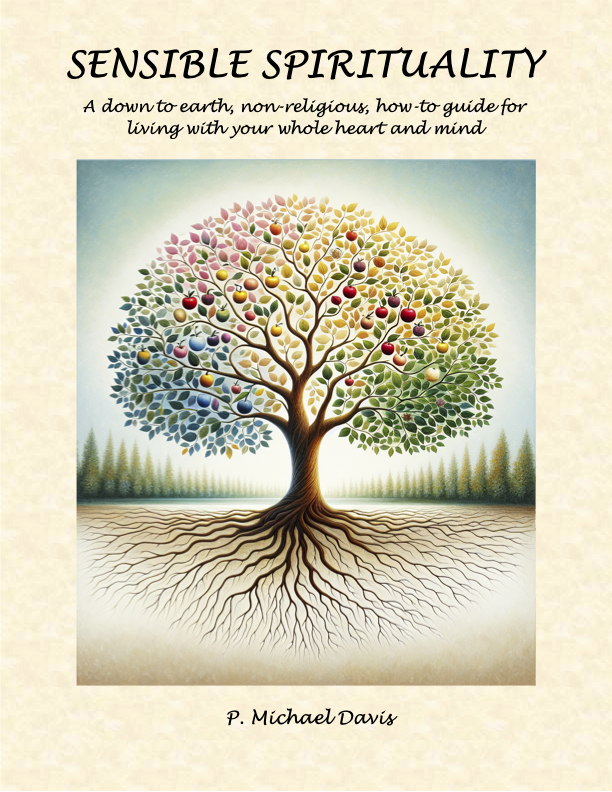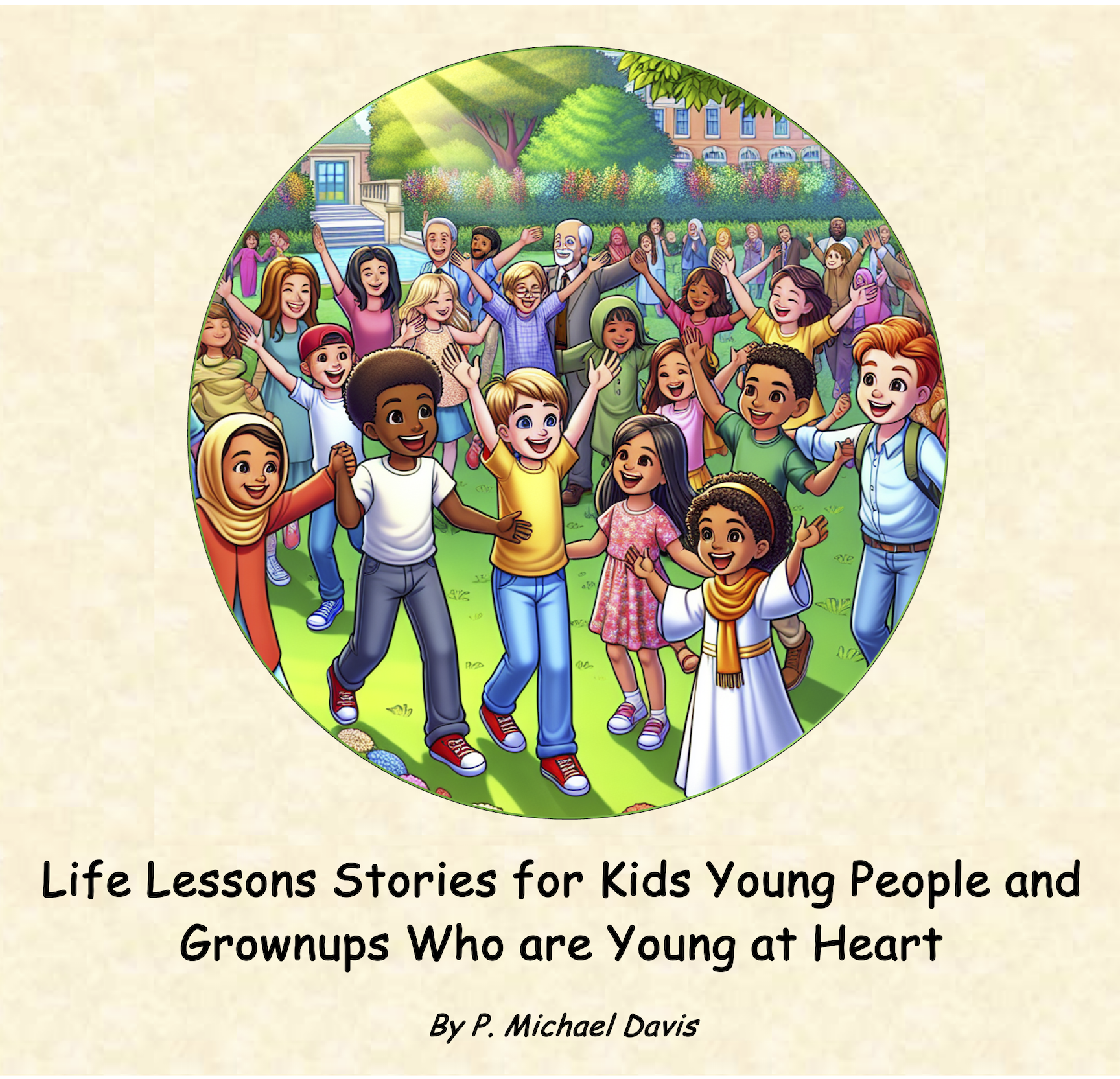Tools for Spiritual Growth

The first tool for spiritual growth
The first tool that spiritual growth requires is self-reflection: an honest, straightforward, and transformative look inward at ourselves.
While that may seem like a complex and daunting task, self-reflection simply requires us to set aside some time to look honestly and without judgment at where we are, where we have been, and where we are going. In fact, self-reflection is a vital part of the process for developing and monitoring our spiritual attitude.
How do we go about self-reflection?
For me what works best is to ask and answer some questions about what is going on in my life. Some of my questions are ones like this:
What kind of relationship do I have with God right now?
Do I see God as the Great Fixer who I just think about or communicate with when I want or need something?
Do I see God as a harsh and angry punisher who is just waiting for me to do screw up and do the wrong thing?
Do I see God as the guide and driving force in my life?
Do I see God as the love and light that inspires my relationships with family, friends, coworkers, and everyone I meet?
Am I living the kind of life right now that I really believe is right for me?
What things are at the core of the life that is right for me?
When was the last time I experienced unbridled joy and what brought that experience about?
How often can I be truly honest with God and others about what I really want my life to be?
For what am I most grateful in my life right now?
Am I most grateful for people?
Am I most grateful for health and well-being?
Am I most grateful for possessions?
What is the most important blessing in my life right now?
Remember that this process requires honesty and the absence of judgment for it to be really effective. Looking inward is simply an exercise in gathering information about where you are in your thinking, your emotional balance, and your sense of connection with something beyond yourself.
If you are looking inward and judging yourself at the same time, you run the risk of either feeling negative about yourself and where your life might be. Judging can also allow you to experience feelings of superiority and self importance. Neither of those judgment feelings will bring about anything emotionally or spiritually healthy. If you find yourself making judgments about your self-reflection then stop, and do your best gather the information you are learning about yourself and let go of the judgments.
There is no right or wrong to do self-reflection. It's simply an opportunity to take stock of where you are, recognize all the good things that are already in your life, recognize what needs redirecting, clarify your relationship with God, and be open to all the wonderful new possibilities that are ahead.
It is important to learn how to view life through a window instead of in a mirror.
The Toaster Kissing Parable

When she was about 4 or 5 years old, my oldest sister developed this annoying habit of going around and kissing every mirror in the house and anything else that reflected her face, leaving her nasty lip prints behind. It was a very unpleasant habit, but one we all lived with in the hope that she would eventually grow out of it.
One morning as my mother was in the kitchen making breakfast, my sister, the mirror kisser, came into the kitchen and after a few minutes the whole family heard these bloodcurdling screams of pain from her. As we all came running into the kitchen, we realized that she had kissed the brand new bright shiny aluminum toaster right after my mother had taken the freshly made toast from out of it. She was not seriously injured, but her mirror kissing days were over.
I tell this story because I think there are a number of people who go through life as what I would call spiritual toaster kissers. They tend to perceive God, and just about everything else in life through their own reflection. That is to say, that almost everything tends to revolve around their quest for personal fulfillment, self-actualization, achieving their goals, and getting what they want. That doesn’t necessarily make them selfish, mean spirited, or lacking in concern for others, but it does make them self-centered, and self-centeredness is a major impediment to spiritual awareness and the ability to see anything very clearly, including themselves. The biggest problem with toaster kissing is that it turns out to be a pretty lonely, unrealistic, and possibly even painful, way to live.
Now, I am not saying that spiritual growth and spiritual life have noting to do with you. They actually have everything to do with you and your relationship with God, everyone and everything around you. But spiritual growth and life are about the real you, not a distorted reflection of what you wish you were, what you think want to be, or how you believe that you haven’t measured up to some self-imposed or other-imposed expectations in your life.
The second tool for spiritual growth is developing the ability to be still.

We live in an incredibly busy, noisy, and distracting world. And, in the midst of all that busyness and frenetic activity, it's almost impossible to concentrate on and experience what is really important and life-giving. But it's also incredibly important to find a way to break the cycle of busyness and hit the pause button in our lives. Doing that gives us the opportunity to experience genuine communication with God, establish some personal balance, and make space for spiritual growth and awareness. Otherwise any attempt to grow spiritually just becomes one more task to accomplish in the long list of “stuff” that we have to get done on a daily basis.
But the question is always, how do we do it? How do we make that space when there doesn’t seem to be any extra time in our crowded schedules.
Well, the best place to begin is to honestly acknowledge that our constant busyness is actually pretty unproductive, and the sense of restlessness that accompanies it, moves us away from rather than toward, efficiency in the completing of our tasks. It just draws us into a loop of unproductive inefficiency because our minds are cluttered and overwhelmed. That leaves almost no space for much of anything, including spiritual growth.
We need some stillness to be in balance. If only for a little while, we need to be able to stop the relentless voice in our minds that screams “Are we there yet?” so we can function efficiently on any level. Now this personal stillness I'm suggesting is not just quiet idleness. It's the process of creating a small but vital break in our routine which will give us the opportunity to allow God to provide us with inspiration, motivation, and a clearer vision of how to use our energy productively in accomplishing the things we are called to do. It's not opting out of life so we can be spiritual, but bringing our spirituality into the center of all that we do.
To be still is to be at peace, and peace requires the development of spiritual habits, which allow us to enter into stillness from time to time. Again, there is no right or wrong way to be still and at peace. Meditation, reading a book, taking a walk, listening to music, watching the sun rise or set, whatever brings you peace and stillness is a valid way to begin to bring spiritual growth and balance to your life.
The third tool for spiritual growth is the willingness to be open to possibilities and opportunities that God provides.
In my section on spiritual attitude I wrote that our purpose in life is to be in spiritual and physical relationship with God, other people and the entire universe. As we connect with and share in that purpose, we begin to experience fulfillment, wholeness, and peace. I also said earlier that we are not meant to be solitary and disconnected. We are meant to live in healthy and life giving relationships with everyone (including God) and everything.
If that is true, and I am convinced that it is, then God and all of us have the same objective for our lifes. No that doesn’t mean that can live totally problem and struggle-free. It means that problems and struggles are not what should define us, or the way that we go about living our lives. The biggest obstacle with being open to God’s opportunities and possibilities is that we live in a world which constantly tells us not to expect to experience fulfillment, happiness, wholeness, peace, joy and contentment.
Our world says if you ever get any of that stuff then it is an unusually wonderful day and you can’t expect many of those days in the course of your life. In fact, our world tells us that problems, struggles and bad things happen most of the time and we have to be constantly focused on protecting ourselves from them.
I remember being told once by a person who taught sales techniques that you can convince anyone to buy just about anything if you can tap into their fear about what terrible things might happen in their lives, or their greed. Now that sounds pretty cynical to me, but I think there is a kernel of truth to it.

The Black Dot Exam
When I was in graduate school studying pastoral counseling, one of my psychology professors gave my class an exam which consisted of the picture that you see on your left. The instructions on the exam were to write an essay on the picture and explain it in as much detail as possible. We were all a bit confused about exactly what the professor wanted, but undaunted we all set to work to explain the significance of the picture of the black dot. I don’t remember what I wrote, but I am pretty sure that it was a long-winded and pretty lame attempt to make sense of something that made absolutely no sense to me. At the end of class, we all turned in our papers and the following day the professor told us that we had all failed the exam because we had all written about the small black dot while ignoring the huge white space that surrounded it.
He then went on to explain that most of the people we would be counseling were, like us, only focused on black dots (their real or perceived problems) with no awareness of the white space (the possibilities and opportunities that were all around them to either solve or move beyond the problems). He said that we live in a black dot world in which people tend to move from one problem or crisis to another without ever considering the reality that there is more to life than black dots.
This is why I say that having an openness to the possibilities and opportunities God provides in life is a critical tool for spiritual growth. The truth is that while God doesn’t offer us a problem-free life, God does offer us limitless opportunities for both solving and living beyond problems and struggles. We simply have to be open and willing to look beyond the black dots and trust in our spiritual awareness (our connection with God). If we can do that, then we can discern, in the white space, what possibilities God puts before us. And we can learn how to avoid being overwhelmed and defeated by any negativity we experience.
Sensible Spirituality
A down to earth, non-religious, how-to-guide for living with your whole heart and mind
While there are a multitude of books about personal development and spiritual growth, author and storyteller P. Michael Davis goes down a different path by offering a real-life conversation about how to build and maintain a positive and spiritually healthy life.
His approach is thoroughly non-religious, entertaining, and devoid of jaw clenching seriousness. He will walk you through the whys and how tos of spiritual awareness, spiritual relationship building, spiritual love, and spiritual parenting for children and adolescents.
Sensible Spirituality is available, by clicking the book cover above, in kindle, paperback, and audio book formats at Amazon.com.

